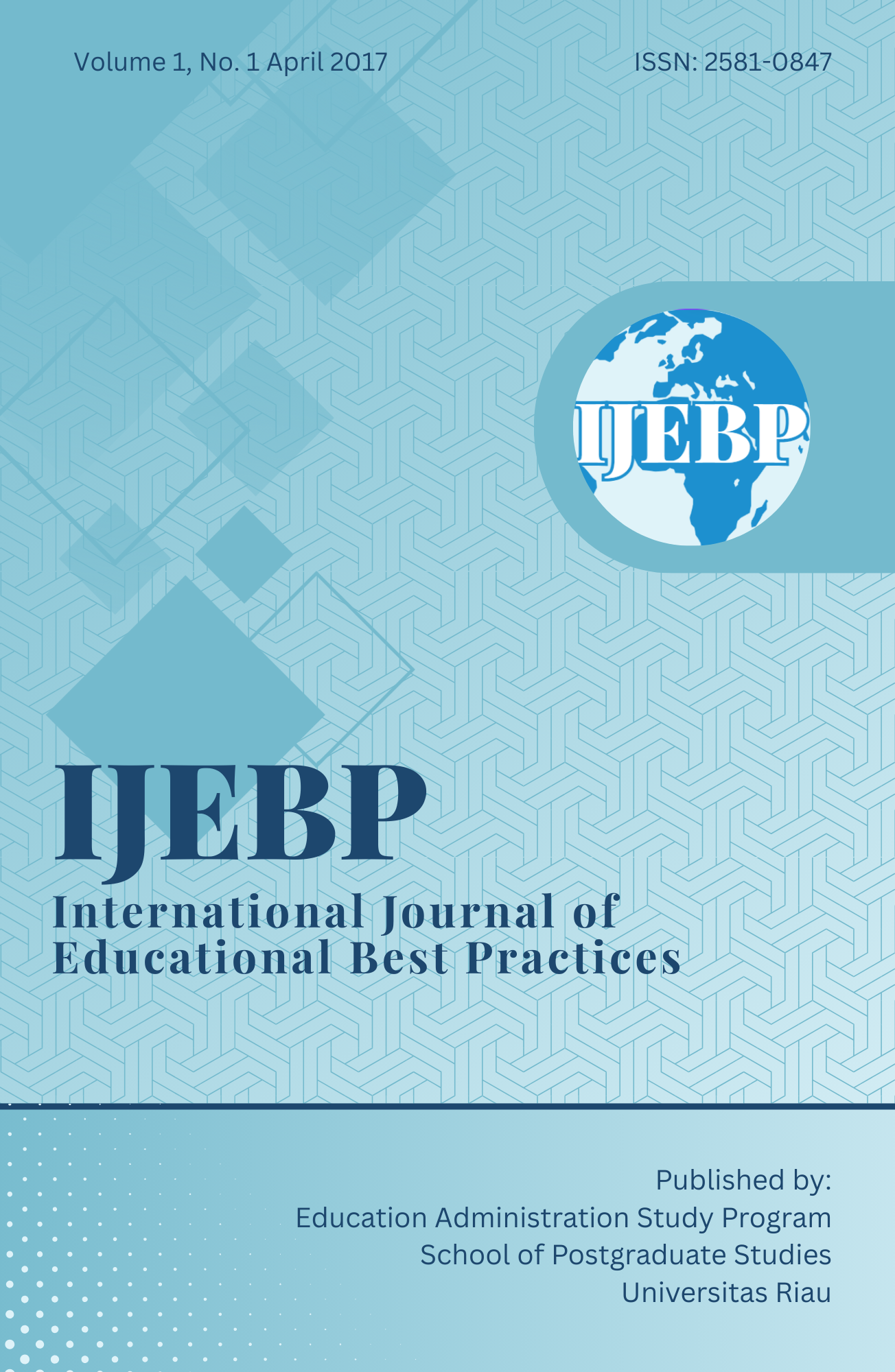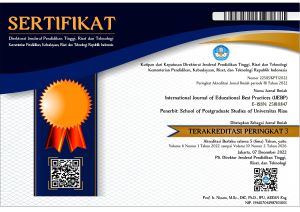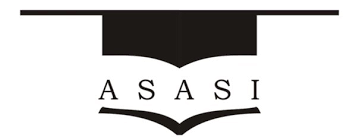Pre-Service Teachers’ Integration into Teachers’ Community during Teaching Practicum
DOI:
https://doi.org/10.31258/ijebp.1.1.3-18Keywords:
teaching practicum, pre-service teachers, identity construction, teachers community, integration, identity in transitionAbstract
Teaching practicum is a strategic place where pre-service teachers transform themselves from being pre-service teachers (PSTs) to become novice teachers. Data from a case study on how a group of PSTs experience integrate into teachers’ community during teaching practicum in Indonesian context shows that their journey is not linear; it encompasses a complex process, enriched by tension and conflict before some of them hold a sense of belonging to teachers community in their placement schools. Their ample engagement and participation with members of school community during teaching practicum program have effectively played as a significant factor behind their integration and identity transition.
References
Achinstein, B. (2006). New teacher and mentor political literacy: reading, navigating and transforming induction contexts. Teachers and Teaching: Theory and Practice, 12(2), 123-138.
Beijaard, D., Meijer, P. C., & Verloop, N. (2004). Reconsidering research on teachers' professional identity. Teaching and Teacher Education, 20(2004), 107-128.
Bjork, C. (2004). Decentralisation in education, institutional culture and teacher autonomy in Indonesia. International Review of Education, 50(3/4), 245-262.
Bonavidi, R. (2013). Pre-service teacher education for English as an additional language in Indonesia : work integrated learning perspectives. (PhD Published), University of South Australia, Adelaide.
Britzman, D. P. (2003). Practice makes practice: a critical study of learning to teach. Albany: State University of New York Press.
Caires, S., & Almeida, L. S. (2005). Teaching practice in Initial Teacher Education: its impact on student teachers' professional skills and development. Journal of Education for Teaching, 31(2), 111-120.
Danielewicz, J. (2001). Teaching selves: identity, pedagogy, and teacher education. Albany, New York: State University of New York Press.
Dardjowidjojo, S. (2001). Cultural constraints in the implementation of learner autonomy: The case in Indonesia. Journal of South Eas Asian Education, 2(2), 309-322.
Day, C., & Flores, M. A. (2006). Contexts which shape and reshape new teachers’ identities: A multi-perspective study. Teaching and Teacher Education, 22, 219-232.
Farrell, T. S. (2001). English language teacher socialisation during the practicum. Prospect, 16(1).
Grootenboer, P. (2005). The Impact of the school-based practicum on pre-service teachers’ affective development in Mathematics. Mathematics Teacher Education and Development, 7, 18-32.
Hascher, T., Cocard, Y., & Moser, P. (2004). Forget about theory—practice is all? Student teachers' learning in practicum. Teachers and Teaching, 10(6), 623-637. doi: 10.1080/1354060042000304800
Holland, D., Lachicotte, W., Skinner, D., & Cain, C. (1998). Identity and agency in cultural worlds USA: Presidents and Fellows of Harvard College.
Hudson, P., Nguyen, T. M. H., & Hudson, P. (2008). Challenges for preservice EFL teachers entering practicum. Paper presented at the Asia TEFL International Conference: Globalizing Asia: The Role of ELT, Bali Indonesia.
Humaidi, D., Al-Shara, H., Arouri, Y., & Awwad, F. A. (2014). Student teachers' perspectives of practicum practices and challenges European Scientific Journal, 10(13), 191-214.
Johnston, S. (1994). Experience is the best teacher; or is it? an analysis of the role of experience in learning to teach. Journal of Teacher Education, 45(3).
Kelchtermans, G., & Ballet, K. (2002). The micropolitics of teacher induction. A narrativebiographical study on teacher socialisation. Teaching and Teacher Education, 18, 105-120.
Korthagen, F. (2001). Linking practice and theory: the pedagogy of realistic teacher education. New Jersey: Lawrence Erlbaum Asoociates.
Kuswandono, P., Gandana, I., Rohani, S., & Zulfikar, T. (2011). Revisiting local wisdom: efforts to improve education quality in Indonesia. Paper presented at the Australian Association for research in Education (AARE) Conference, Hobart, Tasmania.
Lawson, T., Çakmak, M., Gündüz, M., & Busher, H. (2015). Research on teachıng practicum – a systematıc review. European Journal of Teacher Education, 1-16. doi: 10.1080/02619768.2014.994060
Leave, J., & Wenger, E. (1991). Situated learning, legitimate peripheral participation. New York, USA: Cambridge University Press.
Merseth, K. K., Sommer, J., & Dickstein, S. (2008). Bridging worlds: changes in personal and professional identities of pre-service urban teachers.(Report). Teacher Education Quarterly, 35(3), 89.
Nurdin, I. (2010). Quo vadis pamong praja : pamong praja dulu, kini dan akan datang. Paper presented at the Scientific Traffic Forum, Jatinagor. http://www.ipdn.ac.id/arikel/QUOVADISPAMONGPRAJA.pdf
Olsen, B. (2008). How reasons for entry into the profession illuminate teacher identity development. Teacher Education Quarterly, Summer, 18.
Ong'ondo, C. O. (2009). Pedagogical practice and support of English language student teachers during the practicum in Kenya. (Doctoral), University of Leeds, Leeds.
Panduan Pelaksanaan PPL Mahasiswa FKIP Universitas Riau (2013). Pekanbaru: Riau University Press.
Pungur, L. (2007). Mentoring as the key to a successful student teaching practicum: a comparative analysis. In T. Townsend & R. Bates (Eds.), Handbook of Teacher Education: Globalization, Standards and Professionalism in Times of Change. Netherland: Springer.
Richards, J., & Farrell, T. S. C. (2011). Practice teaching: a reflective approach. Cambridge: Cambridge University Press
Sachs, J. (2001). Teacher professional identity: competing discourses, competing outcomes. Journal of Education Policy, 16(2), 149-161.
Sutherland, L., Howard, S., & Markauskaite, L. (2006). Professional identity creation: examining the development of beginning preservice teachers’ understanding of their work as teachers. Teaching and Teacher Education, 26(2010), 455-465.
Trent, J. (2010). “My two masters”: conflict, contestation, and identity construction within a teaching practicum. Australian Journal of Teacher Education, 35(7).
Varghese, M., Morgan, B., Johnston, B., & Johnson, K. A. (2005). Theorizing language teacher identity: three perspectives and beyond. Journal of Language, Identity & Educational Studies, 4(1), 21-44.
Walshaw, M., & Savell, J. (2001). Learning to teach: the construction of teacher identity in the context of schools. Paper presented at the 24th Annual MERGA Conference, Sydney.
Wenger, E. (1998). Communities of practices: learning, meaning, and identity. Cambridge, UK: Cambridge University Press.





